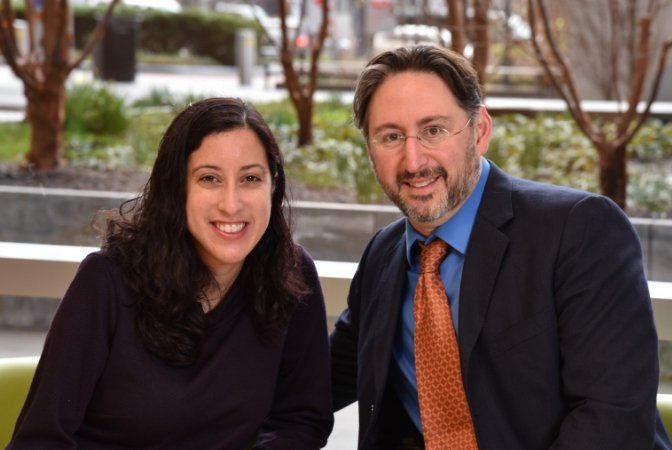Surgeons at Johns Hopkins Medicine performed the procedure on Nina Martinez, left, a 35-year-old woman living with HIV, who donated her kidney to an unnamed recipient. Dr. Dorry Segev, right, a professor of surgery at Johns Hopkins. Photo courtesy of Johns Hopkins Medicine
March 28 (UPI) -- The world's first kidney transplantation from a person living with HIV to a recipient also living with HIV took place on Monday.
Surgeons at Johns Hopkins Medicine performed the procedure on Nina Martinez, a 35-year-old woman living with HIV, who donated her kidney to an unnamed recipient.
"A disease that was a death sentence in the 1980s has become one so well-controlled that those living with HIV can now save lives with kidney donation -- that's incredible," Dorry Segev, professor of surgery at the Johns Hopkins University School of Medicine, said in a news release.
The U.S. has a shortage of more than 95,000 kidneys, leading health professionals to call for the federal government to lower the standards for kidney donations.
In 2013, the passage of the HIV Organ Policy Equity Act removed restrictions on organ donations from people with HIV.
To be considered a healthy kidney donor, people with HIV must have their virus and blood pressure under control, and not have diabetes or any protein in their urine, according to the American Journal of Transplant.
The U.S. also has a high demand for people seeking liver transplants. Earlier this year, the National Institutes of Health began the first large-scale clinical trial in U.S. history of liver donations between living HIV positive donors and recipients.
In 2016, Sergev performed the world's first HIV-to-HIV kidney and liver transplant from a deceased donor to a living patient. Since then, more than 100 transplants have occurred from deceased HIV donors to living HIV recipients.
Nearly 114,000 people are waiting for organ transplants in the U.S., according to the United Network for Organ Sharing, and kidneys have the longest waitlist. Roughly 20 percent of people waiting for an organ transplant of any kind die each year.
Martinez traveled from her home in Atlanta to Baltimore last October to donate her kidney to a friend. But that friend passed away from kidney disease. So, Martinez found another person in need of her organ, which she was glad to deliver to the anonymous recipient.
"Despite losing my friend to kidney disease, I wanted to move forward with donation as a way to honor them," Martinez said. "I could do this for someone else, not because I'm special but because I'm strong. Other people living with HIV before me participated in clinical research so that I could not just survive but thrive. It was my turn to do this, for both my friend that I cared about and all people waiting on a transplant."
Overall, people with HIV are at an increased risk for kidney and liver failure due to damage done by diabetes, hypertension and the hepatitis B and C viruses.
"What's meaningful about the first living kidney donor -- who is also living with HIV -- is that this advances medicine while defeating stigma, too. It challenges providers and the public to see HIV differently," said Christine Durand, an associate professor of medicine and oncology the Johns Hopkins Medicine. "As patients waiting for a transplant see that we're working with as many donors as possible to save as many lives as possible, we're giving them hope. Every successful transplant shortens the waitlist for all patients, no matter their HIV status."















